Work packages and focus areas
CreaTeME has four main focus areas: pedagogy, artistry, professionalism, and sustainability. These focus areas will be developed through five work packages.
WP1 - Responsive pedagogies
As technology develops, there is a continuous shift in what is considered relevant knowledge and creativity in music education. For example, institutions providing higher music education have traditionally functioned as gatekeepers to what constitutes musical knowledge and creativity, but actors such as software designers are to an increasing degree inhabiting this role, as musical competence and agency is programmed into musical tools. Further, DIY strategies and online resources enable music students to become experts in particular technologies or genres prior to entering higher education, which tends to fragment their entry-level competences.
Deliverables and impact
The team in work package 1 will develop ways in which higher music education can tackle the fragmented and varying pre-knowledge of students, and continue the work on how student expertise can be activated and exploited in the educational programs through numerous student-active initiatives such as student-driven drop-in. We will also explore ways that video (and possibly VR and/or AR) can be used to enhance observation-based mentoring, such as one-to-one tuition. Lastly, we will develop and enroll CPD-courses that aims to contribute to life-long learning for both music teachers and researchers, and music practitioners.
The WP-team consists of:
Eirik Sørbø // Leader
Eirik Askerøi
Ingolv Haaland
Hilde Norbakken
Serhat Sahin (student)
Gustav Sæterøy (student)
WP2 - New ways of using technology
Work Package 2 engages with new and emerging technological trends, creatively and pedagogically. New technology provides unexplored possibilities and promotes new creative practices driven by these technologies. For example, artificial intelligence (AI) based on machine learning and neural networks is now able to improvise and compose music, and researchers and artists explore ways to perform and compose music deploying AI as a collaborator.
Emerging technologies provide composers and producers with new possibilities for composition and arrangements within immersive 3D audio formats. This again is transferrable to the exploration of work in mixed realities such as Virtual Reality (VR) and augmented reality (AR), where headsets with advanced audio-visual features and headtracking are becoming mainstream consumer technology. Likewise, advanced software, electronic components and 3D printing technologies provide musicians with new possibilities of creative practice where the interaction with an electronic software instrument can also be through a non-traditional interface created by the musician themself.
This WP provides interdisciplinary opportunities within both knowledge creation, artistic research and entrepreneurship.
Deliverables:
New technology promotes new creative practices, and Work Package 2 engages with emerging technological trends, both artistically and pedagogically, and with associated partners. Through artistic research projects, performances, workshops, and student-led concerts and installations, this work package will explore AI as an improvising collaborator and compositional co-creator, artistic possibilities when technology brings performing musicians located in different corners of the world together on the same hybrid online/in-real-life stage, artistic possibilities for composition and arrangements within immersive 3D audio formats, audience participation through technologies, and more. Students will also design their own instruments, tools, and plugins, and Work Package 2 will develop a gear library of hardware and software that can stimulate students and staff to explore tools and develop artistic and pedagogical strategies.
Impact:
The activities in Work Package 2 will challenge and develop both students' and staff's creative strategies and engagement with technology, artistically and pedagogically. The Work Package will produce innovative performances and compositions, and it will provide students with tools to involve their audience as active participants.
The WP-team consists of:
Ivar Grydeland // Leader
Alessandra Bossa
Lars Kristian Lia
Egil Kalman
WP3 - New ways of making and performing music
Whereas WP2 looks at technology as an independent instrument and medium in making music, the focus in WP3 is on working with artists and musicians using ‘traditional’ instruments (such as violin, electric guitar, or drums): how technology is used as part of their musicianship, both as an integrated part of their artistic practices, and as a tool for training and collaborations. Technology further holds the potential to bridge the gap between music making and performance29, and to merge various forms of musicianship.
This WP explores technological solutions that promote creativity and collaboration in music making and performance, and connects music students across musical genres, institutions and nations. The theoretical framework evolves around informal learning strategies in formal popular music education and creativity theory in higher music education.
The WP-team consists of:
Torun Berg Eriksen // Leader
Ingvild Koksvik
Jonas Sjøvaag
WP4 - Artistic entrepreneurship
WP4 follows two related approaches responding to digital change and both suggesting the need to adjust music education in accordance with (1) changes in business models, markets and value-chains, and (2) new and more complex competences required by musicians and artists. A significant feature following digitalization of the music industries is the transformation towards a more artist-centred economy34 in which specialized tasks, previously handled by professional intermediaries, are now handled by the artist themself.
This WP mainly responds to how technology changes the work market (CH3), both in terms of where income is generated and who receives it, who the stakeholders are and how power is distributed, and how marketing and branding are performed. The digital music market is volatile and complex, requiring flexibility and agility from its stakeholders. Participants in these shifting markets need artistic skills, an entrepreneurial mindset as well the ability to adapt to new trends, as also recognized in general Norwegian education policy.
Delivarebles and impact
The goal of WP4 is to create an innovative teaching model, a recourse bank, and a national and international network that together will ensure continuously updated and relevant education in music entrepreneurship. This is necessary to better help musicians, producers, and other actors to navigate in increasingly complex and unpredictable music industries.
The teaching model will be developed through student conferences and courses which will be based on a combination of bottom-up and top-down strategies; student involvement, real-world challenges, and access to relevant recourses and network will be central. The resource bank will be located at an open access digital platform where also students across countries can communicate and interact. The assembled national and international network will gather both physically and virtually and will consist of educational institutions specializing in music entrepreneurship as well as professional actors from the broad music industries.
The WP-team consists of:
Ragnhild Brøvig // Leader
Andy Inglis
Anna Willrodth
Daniel Nordgård
WP5 - Responsible education
Technology challenges societal and political structures (for example by enabling and amplifying research abuse and support for conspiracy theories) and traditionally contributes to maintaining gender imbalance and lack of diversity in music education. However, technology also enables access and critical responsibility in education. Addressing technology in responsible music education thus both implies awareness of critical dimensions and opportunities to address responsible education through technology. WP5 addresses the institutional responsibility of universities to educate engaged and responsible citizens, and to actively work to recruit under-represented groups into music education. It includes perspectives from music and health, community music, and socially engaged artistic practices.
WP5 seeks to recruit a demographically more representative student body, develop content and models for how music education can foster inclusion and societal responsibility, and exploring how students can contribute to an inclusive and responsible field of practice when completing their education as music professionals.
Deliverables and Impact:
WP 5 seeks to promote critical thinking, democratic principles, inclusion, and the role of art in society through artistic projects, workshops, and seminars. The work package will execute these initiatives through two task forces. Task force 1 will concentrate on visiting Scandinavian institutions to develop and promote tools that enhance diversity through seminars and workshops. Task force 2 will visit Scandinavian schools to perform music and provide workshops on the creative utilization of music technology.
WP 5 will conduct an overall assessment and revision of music programs at UiA in terms of inclusion and responsible music education and practices. To address these aspects in education, WP 5 will also work on developing a new course centered on music and health. This course will cover the physical and mental well-being of musicians and incorporate inclusive perspectives regarding the professional roles of musicians in society.
The WP-team consists of:
Hege Merete Bjørnestøl Beckmann // Leader
Tormod Wallem Anundsen // Leader
Gunn-Hilde Erstad Haugen




